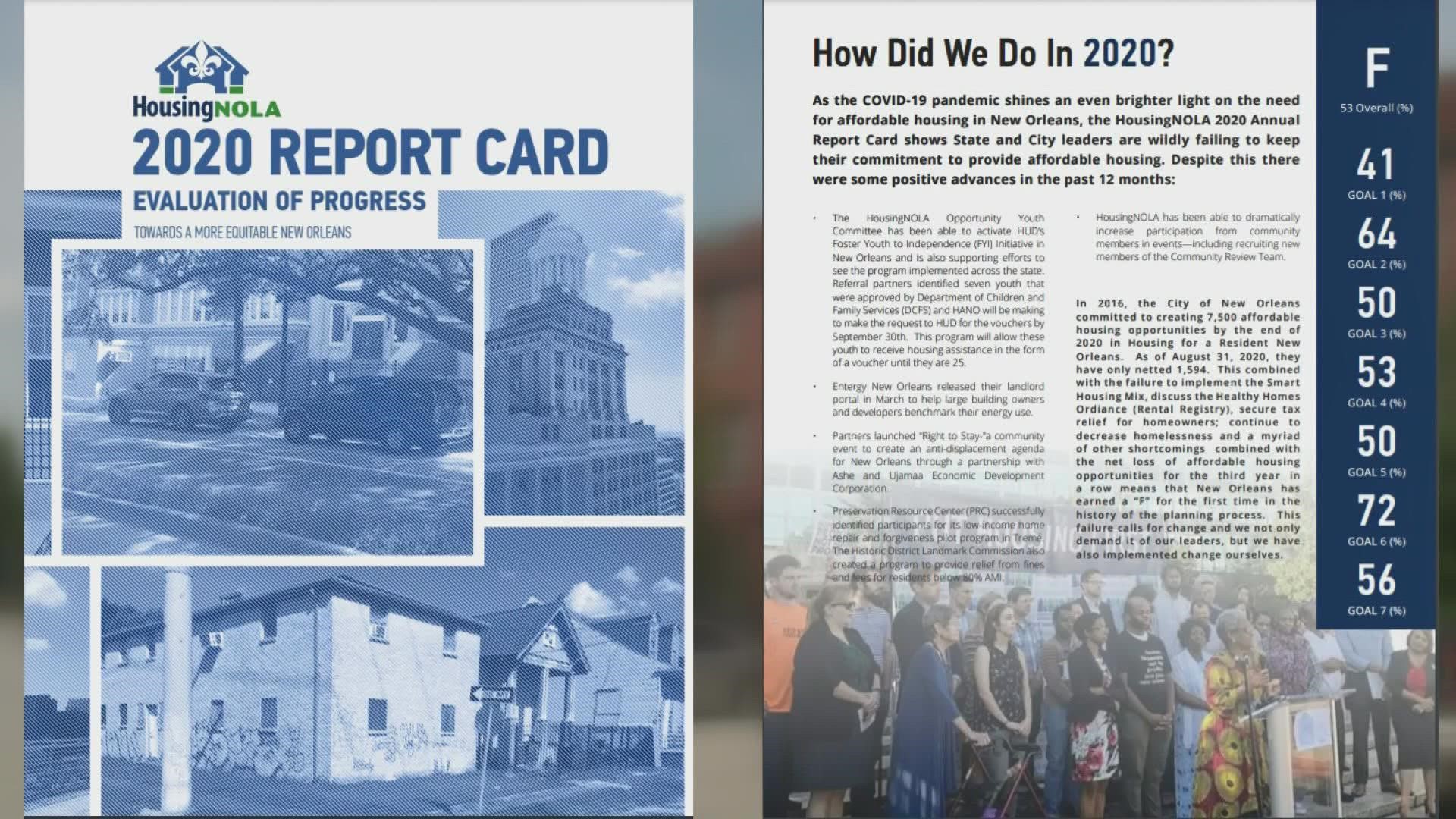NEW ORLEANS — The Biden administration’s plan to temporarily freeze evictions in COVID hot spots is being applauded by housing advocates in New Orleans, but they say it won’t solve the city’s challenges with affordable housing.
Preceding the pandemic, New Orleans received poor marks when it came to affordable housing, but city leaders are pushing back on those criticisms. With thousands of families in New Orleans unsure how they’ll pay their rent or mortgage as the pandemic drags on, the office of Mayor Latoya Cantrell is sending out a message that they are a priority.
“My main goal is to keep people housed, keep people off the street and develop affordable housing,” said Marjorianna Willman, director of the office of Housing Policy and Community Development for the City of New Orleans.
When it comes to affordable housing though, the advocacy group HousingNOLA, says the city deserves an “F.”
Under the Landrieu administration, the city set a goal of creating 7,500 affordable housing units by the end of 2020. Mayor Latoya Cantrell inherited that goal, and according to HousingNOLA’s annual report card on progress toward housing goals, the city managed to deliver just under 1,600 units last year. HousingNOLA executive director Andreanecia Morris is skeptical about those numbers improving this year.
“They refuse consistently to point to a schedule on when affordable housing will be brought online, they’ve even refused to show us how they’re tracking it,” Morris said.
Willman didn’t give a specific timeline regarding the when affordable housing goals will be met.
“I believe there’s still a need for affordable housing. I think that need will be with us for many years, and I think we have to take a multi-prong approach, and it’s actually going to be a multi-year approach,” Willman said.
Mayor Cantrell’s chief of staff says HousingNOLA’s grading criteria is arbitrary. John Porciau says the administration is more concerned with immediate housing needs. He pointed to the city recently approving more than $18 million in rental assistance. Porciau claimed the city has allocated and distributed more aid dollars than the state of Mississippi and Alabama combined.
“The priority of our team is that we’re doing the work and less so whether or not we’re making folks happy or not about their ranking system,” said Porciau.
“They’re response to COVID has been lackluster. It’s been better by comparison to other poorly run assistance programs, but it has not been good,” said Morris.
The one point both sides agree on is that more rental assistance money needs to be redirected to cities like New Orleans which have a high population of renters.
“New Orleans is actually slated to receive the third highest allocation after Baton Rouge and after Jefferson Parish despite the fact that New Orleans has more renters,” Andreanecia Morris said.
“If the need is greater in New Orleans and less in other parishes, we certainly would like those funds, to be redirected to New Orleans,” Willman said.
Starting next Tuesday, Aug. 10, and running through Aug. 12, the City of New Orleans will host a rental assistance event. It runs from 9 a.m. until 3 p.m. on those respective days at Joe Brown Park in New Orleans East.
City employees will be on at the site to provide updates and review documentation for rental assistance applicants with application numbers between 5,001 and 11,000. According to the city website, specific applicants have received notices and have been asked to bring a form of identification, proof of address and current income, as well as documentation detailing the amount owed in back due rent.
Aside from the aftermath of Hurricane Katrina, housing in New Orleans hasn’t been this unstable in recent history. The ultimate judges on how well the city is doing in providing affordable housing may very well be the people who need it the most.

